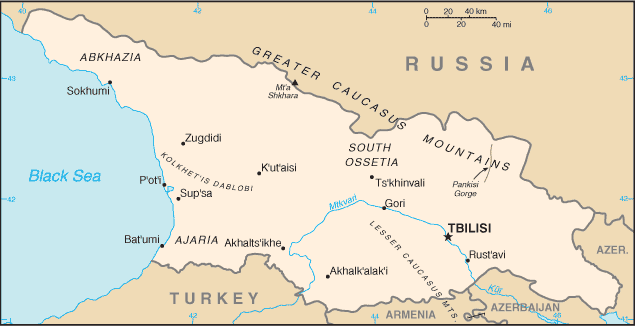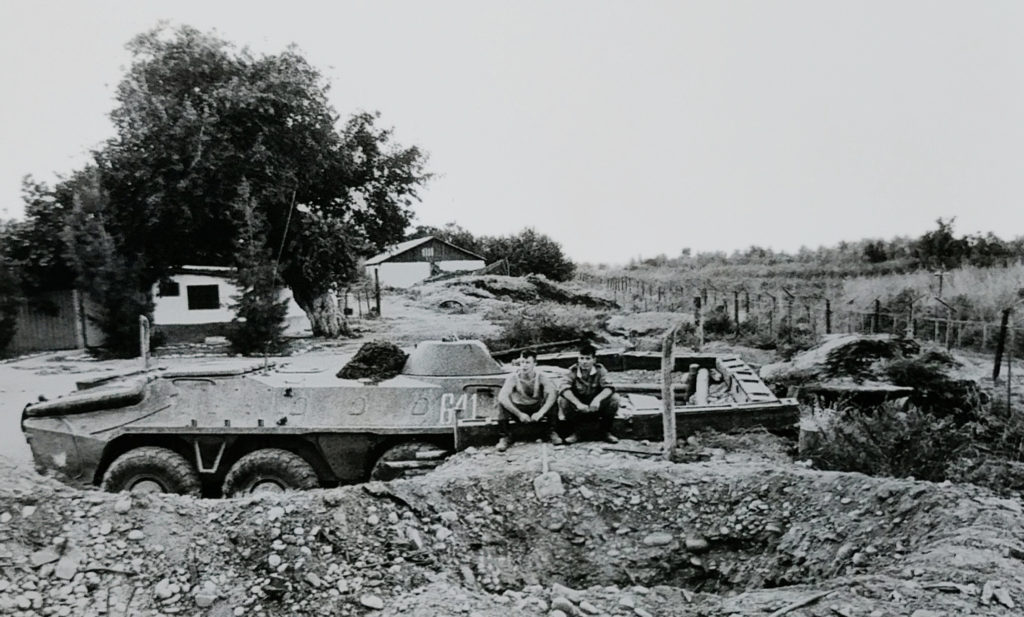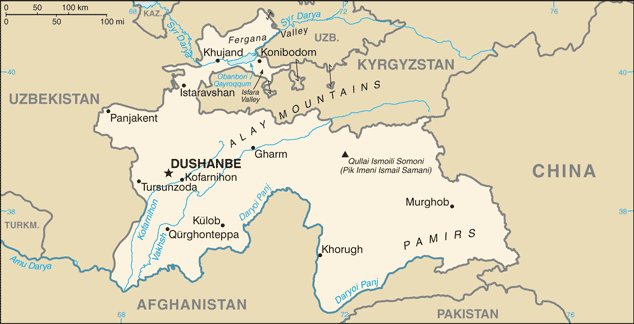
BY ALL accounts, Georgia’s first democratically-elected post-Soviet president is dead and buried near the west Georgian village of Jikhaskari.
But Zviad Gamsakhurdia isn’t about to let a little thing like death slow him down.
‘He said that even if he were to die he would continue to fight from beyond the grave,’ his wife, Manana Archvadze-Gamsakhurdia, said in an interview at the end of January at her home in exile in the nearby Chechen Republic.
‘He said:’I will do even more for Georgia then than I do now.’ ‘
Her husband killed himself on December 31, she said, after the rebellion he led in the Mingrelia region of western Georgia was defeated by government forces backed by the Russian military.
But because the body has never been found, many Georgians believe that the man whose nationalist policies and opposition fighters set off three civil wars in three years may still return.
‘If he was dead, they would have found the body a long time ago. So he is alive,’ said Alexander Chikvaidze from the western province of Mingrelia, echoing many Georgians.
To those who believed in his vision of a Georgia free of Russian control, the lack of any final evidence is reason to hope that he may yet reappear to overturn the current government’s co-operation with Russia.
But most Georgians, according to the referendum that overwhelmingly confirmed Eduard Shevardnadze as head of state over a year ago, see Gamsakhurdia as a symbol of civil strife and economic ruin.
‘The reason it is so bad here now is because of Zviadism and the civil war,’ said Kalistrand Chikovani, aged 75, a school director in the pro-Gamsakhurdia village of Mukhuri in Mingrelia. ‘If he does return and finds support, it will be a catastrophe.’
Gamsakhurdia is reportedly buried in Jikhaskari, a tiny village about 12 miles from the Mingrelian capital Zugdidi – supposedly in the yard of one of his supporters, although police could find no signs of a grave.
Residents say that he arrived in a Red Cross vehicle, conspicuous in a village where horse-drawn wagons are the dominant mode of transport.
But now, with the Georgian government investigating the circumstances of his death, people are afraid to talk. The village headman, Megona Margia, said the Georgian security ministry, the successor to the KGB, had questioned all the known Zviadists.
So is there anyone who knows where Gamsakhurdia is buried?
‘We know where the body is,’ said Merab Kiknadze, his right-hand man.
Gamsakhurdia’s family would be willing to return to Georgia and identify the burial spot so that the body could be identified, he said – but only with guarantees of safety from the Georgian government, although he added that the widow was opposed to an autopsy on religious grounds, even though one would be mandatory by law.
‘We have to establish the reason for Gamsakhurdia’s death so that in 10, 15 years there will be no questions,’ said a prosecutor’s representative who arrived in Chechnya to meet the family.
Last week foreign representatives who had arrived in Tbilisi and Chechnya to help identify the body returned home after negotiations broke off.
Meanwhile, accounts of Gamsakhurdia sightings continue to come in. The president who would not go away has wandered through Turkey, dropped into Spain, and stopped in to talk to old friends in Finland.
As his friend Mr Kiknadze said: ‘The life of such a man as Gamsakhurdia begins after his death.’


